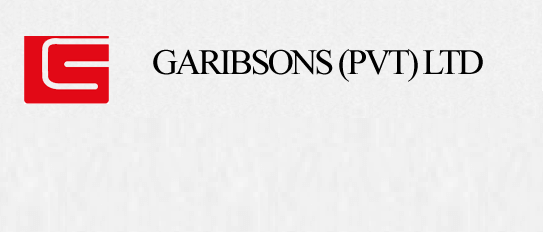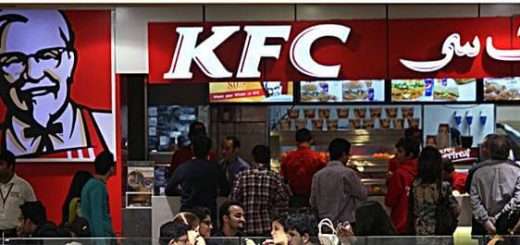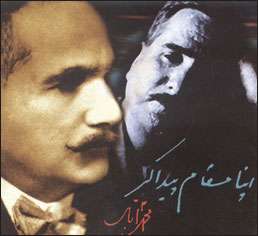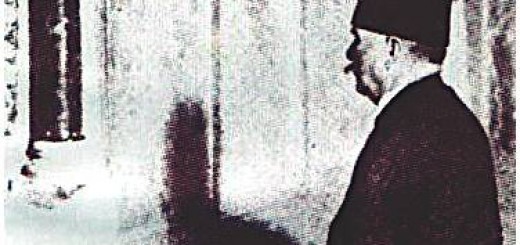Garibsons (Pvt.) Limited – Entrepreneurship Report
Garibsons (Pvt.) Limited
Creation of the Company
Garibsons (Pvt.) Limited was formed in 1976 on the foundation of a very simple idea: achieving the ultimate quality standards for the end consumer; a continuous process that management has always strived to accomplish. The company is a subsidiary of the Garibsons Enterprises, in operation since 1910. This parent company was founded by Muhammad Garib Momin, a Khoja Muslim from the state of Gujrat. The family was established in the port city of Karachi since days long ago. This is one of the traditional merchant families of Karachi. Like his forefathers, Mr. M. Garib was forced into taking up the family business of trading mainly in wooden products. However, Mr. Garib was driven by a strong sense of vision about the product that his progeny was to take up.
The idea of high quality products was the guiding principle upon its inception as a Particle Board (A type of wooden product) manufacturer and very soon led Mr. M. Garib to producing wood products exceeding international standards, enabling the company to attain a large percentage of the competitive Pakistani market.
Diversification strategy:
Driven by a diversification strategy, the third generation of Mr. M. Garib, represented by Mr. Farooq Garib decided to expand into the food market in 1976. This was done with the introduction of Mughal brand spices, pickles and canned foods and later, Basmati and non-Basmati rice. Along with the inherent unending pursuit of excellence and quality, Mughal Foods also embodies the traditional taste of yesteryear; a tribute to the era of eating that made Pakistani cuisine world renowned. Evidence to this lays in the company’s rapid expansion and the ready acceptance of its products in over forty countries around the world.
Mughal Spices:
Soon after its inception in 1976 that is in 1978, Garibsons extended its pursuit of excellence to the food industry, an area that requires the highest degree of perfection. From top grade local and imported ingredients, Garibsons started producing assorted spices, recipe spices, canned foods, pickles and desserts in the name and style of Mughal spices and foods.
The Business As It Stands Today:
Garibsons has established itself as one of the major players not only in the wood manufacturing market but in the food industry as well. Impressive market share and profitability figures during the recent years bear testimony to this fact.
The entire packaging and processing of the Mughal products is carried out on the latest high-tech machinery, commensurate with the highest international standards of quality control for the entire food industry. Garibsons stands committed to win over its consumers’ confidence with the Mughal brand, providing them with superior quality food products.
Mughal spices are available in consumer packs of:
- 1000gms
- 400gms
- 200gms
- 100gms
Mughal pickles and Achaar are available in glass bottles of 350gms.
Mughal Rice:
Pakistani rice, both Basmati and non-Basmati is recognized the world over as the product that sets international standards. Garibsons stands out as one of the country’s foremost rice producers. Rice lovers in all four corners of the globe cherish and have now come to expect the luscious, long grains and the aromatic character of Mughal rice.
It is relevant to mention here that Pakistani Basmati rice had traditionally been marketed by the Indian Marketers. The shrewd Indian investors would buy Pakistani High Quality Basmati Rice at cheaper rates and after packaging the rice, the product was sold in International markets yielding high margins. However, the situation has take a turn in the recent times as the Pakistani Rice Producers have come to the fore with their own versions of Pakistani branded rice. Garibsons has taken a lead in introducing this as a Pakistani product in the international markets.
The company’s pursuit of quality does not stop here however. The management continues to strive towards greater heights with its integral and very successful “4-P” philosophy. Only the top grade paddy is picked from the fields and processed using state of the art technology. It is then polished into its trade mark colour, and finally packaged, all the while keeping the most stringent quality control practices in play. This method ensures that only premium grade Pakistani rice reaches the company’s valued customers in all parts of the world. The company prides itself on having a tremendous customer base, excellent customer relations and a high quality product which has enabled them to discover new vistas to promote Pakistani rice.
The Production Facility:
Due to the continuous demand of quality rice from the international markets, Garibsons Enterprises (Pvt.) Ltd. has set up the most modern and state of the art rice re-processing plant in Pakistan, with an annual capacity of 40,000 tons. The mill is located in S.I.T.E area, which is the closest industrial center to the Karachi port. The machinery comprises of Buhler pre-cleaning, de-stoning, paddy separation, width grading, abrasive polishing, friction polishing, pansifting, mist polishing (for silky finishing), grading and packaging. The complete rice pre-processing plant is supplied by Buhler of Swiss-German origin. The colour sorter is from Sortex of England. Keeping in mind the customers’ most stringent product quality expectations, Garibsons (Pvt.) Ltd. has installed the Sortex Series 90,000 which uses the latest CCD technology, and brings together state of the art optical sensing, data processing and ejector technology. Product yield is maximized by simultaneous resorting capabilities of the Sortex Series 90,000. Due to the latest equipment installed, Garibsons guarantees absolute consistency in quality.
Quality Management at Garibsons:
Garibsons has already enrolled for ISO 9000 certification. The ISO 9000 procedures help the company management in following standard procedures which further help in customer satisfaction, low rates of reject/rework, increased efficiency and ultimately a consistent quality product. The system covers all areas of management, marketing, procurement, processing, quality control, shipping, fumigation, packaging and as such, provides for an over all professional and efficient approach, leaving no room for errors.
The company has a complete laboratory facility with essential instruments and a team of capable analysers. Moisture, whiteness degree, broken percentages, foreign matter and impurities are tested at regular intervals to ensure optimum quality conforming to customer specifications at each stage of processing. Furthermore, fumigation is carried out by government approved professional private fumigation companies under the stringent supervision of qualified inspectors. The process is carried out in three stages:
- Raw material stage
- After processing
- In containers / cargo vessel hatches
Garibsons also has its own storage facilities. The godowns within and around the mill area can store up to 50,000 tons of bagged rice.
PROFILE OF THE ENTREPRENEUR:
Name of the Entrepreneur: Mr. Farooq Garib
Father’s Name: Mr. Athar Garib
Academic Qualifications:
- Secondary Education from a public school in Karachi
- Higher Secondary Education from a Government College in Karachi
- Com from Commerce College Karachi
Name of the Company: Garibsons Enerprises.
Area of Operations:
- Rice Export and Packaged Rice for local markets
- Production, Processing, Packaging and Export of Quality Spices and Canned Foods
- Manufacturing and Marketing of Wood Products mainly Particle Board
Responsibility and Designation: Chairman, Garibsons Enterprises & CEO of Garibsons (Pvt) Ltd.
Date of Birth: July, 1941
Current Age: 58
Age at which the business was joined: 22Yrs (1963)
Age at which became the CEO: 1976
Family Characteristics:
- Married at the age of 24 Yrs to an uncle’s daughter whose family was into Construction Business in Saudi Arabia
- Has three sons and a daughter. All of them are married with the exception of the youngest son who is currently studying in Brisbane.
- The two sons are actively involved in the family business. The eldest son, namely Mr. Fauzi Garib, is being prepared for management succession and is expected to take up the reins of the company.
Interests:
- Plays Golf
- Pursues interests in reading and writing Poetry
- Current Affairs
- Loves gourmet cooking
THE LIFE & TIMES OF MR. FAROOQ GARIB:
A CHRONOLOGY
Early Childhood:
Mr. Farooq Garib was born in a well to do household. He was the eldest son in a family of seven people. As far as his siblings are concerned, he had three brothers and two sisters. According to Mr. Garib, he spent his golden years as a quite but thoughtful child who would always be obsessed with getting to the bottom of all kinds of problems that confronted him. In many ways he was a precocious child who would often come up with questions that were way beyond his years. Responsibility was thrust upon him early in life; his father had a great and everlasting influence on him. He was responsible for handling important household chores, however, from the age of 15 onwards, he was frequently taken to his father’s office. There, he was made to learn the ropes of handling an enterprise. He was also made familiar with the kind of business that the family was actually involved in at that point in time.
Personality Development:
Mr.Garib, while talking about the development of his character as a young man, told us that his parents and near relatives played an important role in imparting the values that make him the kind of man he is known as today in the industry. He was always known as a righteous, honest and dignified young man; a man of integrity and one having faith in his co-workers. These facets of his personality greatly contributed to the establishment of his credibility in the industry. He was always committed to the work given to him and showed keen interest in learning new concepts. This was amply manifested in the generous comments offered by the teachers regarding his performance in classes. His hard working attitude also yielded prize winning academic performances.
However, Mr. Garib attributes his success most of all to his street smartness which he gradually acquired as he moved into adulthood. He related an important incident to us regarding this fact: a couple of years before joining the business, due to the onset of the 1965 war, the business was not able to meet its foreign contractual obligations. This was primarily due to the fact that a certain major supplier of raw materials was rendered unable to produce the required items. Mr. Garib quickly salvaged the situation by giving the supply contract to another supplier without severing their contacts with the main supplier. Although they made a loss on this transaction, it proved to be a success for the company in the long run. Mr. Garib confided in us that he had a gut feeling that the new supplier would be able to deliver the goods. This sixth sense, according to him, was borne out of his street smartness and in depth knowledge of market characteristics / players.
The Opportunity:
The Garibsons Enterprises spanned not only the West Pakistani markets but also covered the East Pakistani region. This region was the main supply of wood for the Particle Board products which the company manufactured. After the ’71 war and the subsequent partition of East Pakistan with the rest of the country, all the assets of the company located in Bangladesh were confiscated by the new government there. This occurrence drastically affected the company’s wooden product business. Moreover, declining economic conditions in Pakistan severely hurt the company’s business in the West Pakistani markets. Costs of production shot up, availability of supply grew waner and employee morale hit rock bottom. These problems took their toll on Mr. Ather Garib and he suffered a minor stroke in the summer of 1975. As prospects for not only the business, but the family as a whole looked more and more slim, Mr. Farooq Garib took it upon himself to get the situation back in control. But this was not done through a whim or flight of fancy. Mr. Garib had a vision for the company; he had a shrewd idea of where it stood, its capabilities and the type of demand for other products in other markets which had mostly been left unexplored. Mr. Garib, indeed saw this as a golden opportunity to make money even in trying times not only for the business but the family as well.
His decision was to diversify into the rice exporting business as there were immense opportunities in this field for the company. This is because it was one of the few industries which had the potential to produce exponential growth in profits. And yet, it was a relatively untapped industry with few players in the rice production market. Furthermore, Mr. Garib’s own personal interest in cuisine played a significant part in his decision to enter this market primarily because he understood the product and knew what the market demanded. He also decided to limit their operations in the Particle Board business as this division had been incurring heavy losses in recent times. Thus, a systematic strategy of retrenchment plus diversification was followed. This was the stage at which the new Garibsons (Pvt.) Ltd. Was launched as a subsidiary of the mother concern. According to Mr. Garib, the strategy yielded rich dividends indeed because the company completely turned around in a matter of only 14 months. Encouraged by the results, Mr. Garib followed up on the diversification strategy by going into the spices and canned foods businesses as well. The axiom of total quality was however always kept in mind and, this very factor, according to Mr. Garib is the hallmark of his contribution to Garibsons Enterprises and to the success of the firm.
Financial Position of Garibsons Enterprises:
Starting off with the post war scenario, Garibsons had a total asset base of 25 Million Rupees. This seen in light of the pre-war position of more than 50 Million assets in East and West Pakistan combined gives a factual picture of the amount of loss the Garib Family had to suffer. According to Mr. Farooq Garib, the family had lost godowns, processing mills and farms in East Pakistan. Commenting on the antipathy of the Bangladeshi government, Mr. Garib pointed out that any effort on part of the family alongwith other Pakistani investors was suppressed by the Bangladeshi government’s hostile attitude towards the Pakistani community. (It must be kept in mind that the figures quoted in this section are well-thought estimates as the company itself is not a listed company and the management was adamant at not disclosing the financial position of the company.)
The slowdown in the economic growth also had its bearing on the profitability of the company. Reduced purchasing power in the local market coupled with the increasing difficulties in exports (due to liquidity crunch in the economy) forced the company into two consecutive years of hefty losses. The total equity base business of the Garib family, which had seen a peek of 50 Million Rupees in 1970, had spiraled down to a meager 10 Million Rupees in the year 1973.
The turnaround in the profitability of the company came with higher export orders from friendly Arab Countries, made possible as a result of extensive marketing by Mr. Farooq Garib, who was now acting as the right hand man of his father who was taken ill as a result of continuous losses. According to Mr. Farooq, he was able to bring total contracts worth Rs. 5 million in the year 1974.
A major turning point in the business of the company came with the appointment of Mr. Farooq as the Chairman of Garibsons Enterprises in January 1976. His appointment led to the creation of Garibsons Pvt. Ltd, a subsidiary specializing in the area of canned foods and rice. The total capital required to setup this venture was approximately Rs. 20 Million, raised mainly from his father in law-a businessman established in Saudi Arabia.
Today, the business worth of Garibsons Enterprises is estimated at around 500 Million Rupees with yearly sales projected at Rs. 20 Million.
Family Relations:
For Mr. F. Garib family is the top priority. As has been mentioned in this report, he took great care of his siblings while they were studying. He was an obedient son, who always made his father feel proud. His relations with his wife helped him regain his financial strength as his father-in-law helped in funding the new venture on the request of his wife. According to Fauzi Garib, he has been a responsible and loving father who has become the role model for his sons. His emphasis on moral values and family obligations has eliminated the possibility of any disputes arising among the family members. All contentious issues are resolved amicably.
A major strength of the Garib Family is its degree of close-knitness. The family follows a joint family structure, with Farooq taking the role of the nucleus of the whole family. Major decisions are taken with him approving the issue at hand.
Future Outlook:
Mr. Farooq plans to handover the controls of Garibsons Pvt. Ltd to Fauzi Garib in the next two years, while still maintaining the group chairmanship to himself. It is appropriate to mention here that the two brothers of Farooq Garib maintain proportionate share in the Enterprise, however they are pursuing careers of their own choice.
Suggestions for Improving
The Entrepreneurship Course at IBA:
The following suggestions were given by Mr. Farooq Garib for improving the Entrepreneurship course being taught at IBA. These suggestions were offered with a view to inculcating the entrepreneurial spirit within the graduating classes:
- There should be a constant and continuous interaction of the students with local business men. This could be achieved through guest speaker sessions, seminars and work shops.
- The reports made on local entrepreneurs should be discussed on the class and critically evaluated by the students.
- Entrepreneurship should be made an entirely separate discipline and field of study. Majors in entrepreneurial studies should be offered.
- The text should contain examples from the local environment.
- In order to infuse and encourage the entrepreneurial spirit within the students, more practical and hands-on projects should be given to the students to perform.














